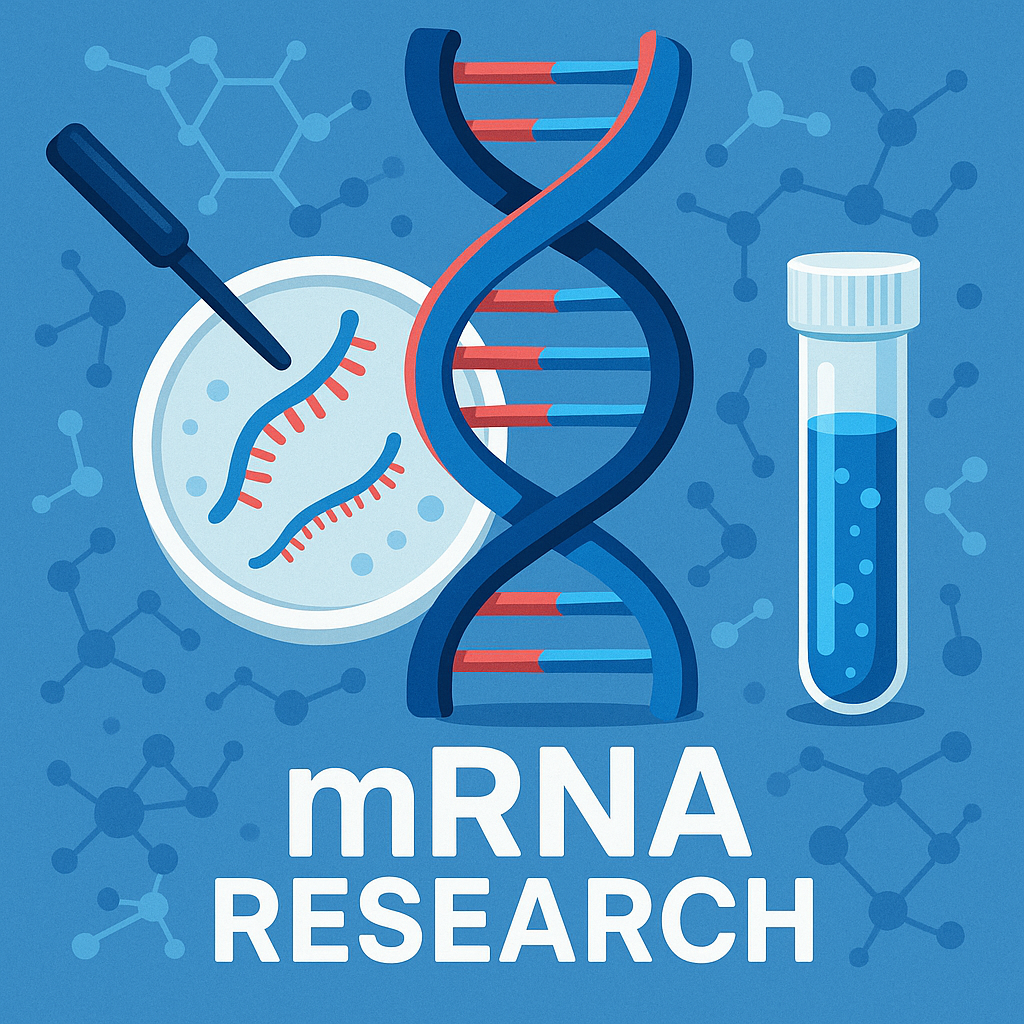
What is mRNA Technology?
Messenger RNA (mRNA) is a type of genetic material that tells cells how to make proteins. It’s like a temporary instruction manual. Unlike DNA, which stores permanent genetic information, mRNA delivers short-term messages that help the body respond to various processes — including defending against diseases.
Until recently, mRNA had never been used in approved medicines. But things changed rapidly during the COVID-19 pandemic. Now, in 2025, mRNA is considered one of the most promising platforms in modern pharmaceutical science.
What is mRNA and how does it work ?
How mRNA Technology Works in Medicine
When an mRNA-based drug or vaccine is introduced into the body, it gives our cells instructions to make a specific protein. The immune system then learns to recognize this protein, training it to fight real viruses or diseased cells in the future.
Here’s a simple step-by-step breakdown:
- Scientists identify the protein linked to a disease.
- They design mRNA that encodes this protein.
- The mRNA is delivered into the body (often via a lipid nanoparticle).
- Cells produce the protein temporarily.
- The immune system detects the protein and responds.
This approach is faster and more adaptable than traditional drug development methods.
Real-World Applications of mRNA technology in 2025
1. Infectious Diseases Beyond COVID-19
Researchers are now using mRNA to create vaccines for diseases like:
- Respiratory Syncytial Virus (RSV)
- Zika Virus
- HIV
- Influenza variants
Clinical trials have shown encouraging results, with better immune responses and quicker production timelines.
2. Cancer Therapy
One of the most exciting uses of mRNA is in personalized cancer vaccines. These therapies are custom-designed based on the genetic makeup of a patient’s tumor. The goal is to help the body recognize and attack cancer cells more effectively.
Pharma companies like Moderna and BioNTech are actively developing mRNA cancer treatments that could become widely available by the end of the decade.
3. Autoimmune and Rare Diseases
New studies are exploring how mRNA can help regulate immune responses in diseases like multiple sclerosis or lupus. In rare genetic disorders, mRNA drugs could eventually replace missing or defective proteins—offering hope where few treatments exist today.
Benefits of mRNA Over Traditional Therapies
mRNA technology offers several unique advantages:
- Speed: Development and manufacturing are faster.
- Flexibility: Can be adapted quickly for new variants or diseases.
- Precision: Targets specific proteins or mutations.
- Scalability: Easier to produce at large scale once the process is optimized.
- Lower Risk: No live virus is needed, reducing safety concerns.
These qualities have made mRNA a game-changer for both public health emergencies and personalized treatments.
How mRNA speeds up drug development
Challenges and Limitations of mRNA Technology
Despite its promise, mRNA-based therapies still face obstacles:
- Stability: mRNA is fragile and breaks down easily.
- Storage: Some require ultra-cold storage, complicating distribution.
- Immune Reactions: Some patients may experience strong immune responses.
- Cost: Manufacturing at scale can still be expensive.
Researchers are working on improving delivery systems and stabilizers to make these therapies more practical and accessible.
The Future of mRNA in the Pharmaceutical Industry
The future looks bright for mRNA. Scientists are exploring mRNA’s role in treating:
- Heart disease
- Neurological disorders (e.g., Parkinson’s)
- Rare inherited diseases
- Antibody production for chronic conditions
Regulatory agencies like the FDA and EMA are also adjusting frameworks to accommodate the unique nature of mRNA-based products.
With global investment and collaboration growing, mRNA is expected to become a core platform for pharmaceuticals over the next decade.
FAQs – mRNA Technology in Pharmaceuticals
1. Is mRNA technology only used for vaccines?
No, while mRNA vaccines gained attention during the COVID-19 pandemic, the technology is also being used for cancer treatment, autoimmune diseases, and rare genetic disorders.
2. Are mRNA-based treatments safe?
So far, studies suggest that mRNA therapies are safe when properly developed. Since they don’t contain live viruses and break down naturally in the body, they carry a lower risk of long-term side effects.
3. How long does it take to create an mRNA vaccine?
Compared to traditional vaccines, mRNA vaccines can be designed and produced in a matter of weeks. This rapid development is especially useful during outbreaks or pandemics.
4. Can mRNA technology cure cancer?
While not a cure yet, mRNA cancer therapies are showing great promise. They help the immune system target and destroy tumor cells, and personalized approaches are already in clinical trials.
5. What’s next for mRNA in pharma?
Expect to see mRNA used for more diseases, including heart failure, HIV, and genetic disorders. As technology improves, it may become the standard for many modern treatments.
Conclusion
mRNA technology has opened new doors in pharmaceutical innovation. It’s not just a tool for fighting pandemics — it represents a major shift in how we approach medicine. With ongoing research, global collaboration, and patient-centered applications, mRNA is set to transform healthcare in ways we are only beginning to understand.
Whether you’re a healthcare professional, student, or simply curious, staying informed about mRNA’s progress is essential in 2025 and beyond.
